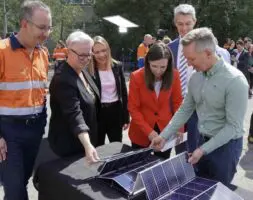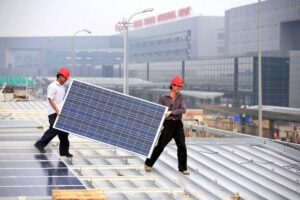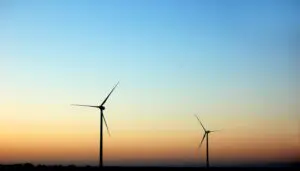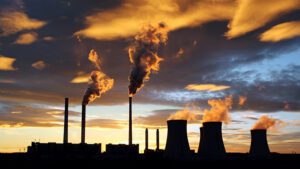The head of Australia’s principal scientific research organisation has been forced to step in to defend the CSIRO’s important GenCost report in the face of unrelenting attacks from the federal Coalition and right wing media and so-called “think tanks.”
The Coalition has launched repeated attacks against the annual and authoritative CSIRO GenCost report, led by Peter Dutton and the energy spokesman Ted O’Brien, who claimed this week on ABC TV that the report had been “largely discredited.”
The latest volley of criticism has prompted the CEO of the CSIRO, Douglas Hilton, to publish an open letter, defending the GenCost report in particular, and science in general, which he said is under attack from political leaders.
It also comes as Rio Tinto, the country’s biggest energy consumer and owner of two biggest aluminium smelters, and AGL, the biggest coal generator in the country, rejected nuclear technology as prohibitively expensive.
“Science is crucial to providing the data and models that allow society to tackle profound challenges; challenges like the COVID-19 pandemic, transition to net zero, keeping Australian industry productive and sustainable, and protecting our unique biodiversity,” Hilton writes in his letter.
“For science to be useful and for challenges to be overcome it requires the trust of the community. Maintaining trust requires scientists to act with integrity. Maintaining trust also requires our political leaders to resist the temptation to disparage science.
“As Chief Executive of CSIRO, I will staunchly defend our scientists and our organisation against unfounded criticism.
“The GenCost report is updated each year and provides the very best estimates for the cost of future new-build electricity generation in Australia.
“The report is carefully produced, its methodology is clearly articulated, our scientists are open and responsive to feedback, and as is the case for all creditable science, the report is updated regularly as new data comes to hand.
“The GenCost report can be trusted by all our elected representatives, irrespective of whether they are advocating for electricity generation by renewables, coal, gas or nuclear energy.”
The Coalition, along with right wing media, the fossil fuel lobby, so called “think tanks” and professional agitators hate the GenCost report because it underlines what is widely accepted in the energy world – that nuclear power is by far the most expensive.
The Coalition has made it clear that it wants to stop the roll out of cheaper large scale renewables and storage, and keep open coal fired power stations for as long as they can, in the hope that they can be replaced by nuclear power.
The Coalition has amplified attacks on both the CSIRO and the GenCost report’s co-author, the Australian Energy Market Operator, along with AEMO’s Integrated System Plan, which lays out scenarios of how the country’s grid can reach zero emissions in little more than a decade through wind, solar and storage.
Many of these attacks have been led by three right wing “think tanks” – the Institute of Public Affairs, the Centre for Independent Studies, and the Menzies Institute – and amplified in the right wing media, particularly in Murdoch newspapers and Sky News.
The campaign also has a significant presence on social media, including youTube videos that have directly attacked the CSIRO and AEMO.
The main reason for these attacks is that these leading authorities publish reports that completely debunk the Coalition’s energy policy – mainly that a transition to renewables can be done, and that nuclear is too slow and too expensive to replace the country’s ageing and increasingly unreliable coal generators.
O’Brien this week said “the lights will go out” if coal fired power stations are closed, as planned, by the middle of the decade. He made a similar prediction for this past summer – but it didn’t happen, apart from one significant outage in Victoria caused by huge storms which took the biggest coal generator off line.
He also repeated his bizarre assertion that while nuclear might be expensive for investors, it is cheap for consumers – which is simply not true unless you factor in the massive consumer subsidies in most of the western countries that have nuclear power.
O’Brien has previously insisted that Australia should go nuclear and embrace in particular small modular reactors. “We are talking about small modular reactors, the safest form of energy production in the world, bar none,” he told Chris Kenny on Sky News, according to a transcript on his own webiste.
Safest, possibly, because none exist. And the most “advanced” SMR – at least the only one close to getting a licence, was pulled in the US because the costs were too much, for the consumer.
Being the only SMR in the world that has got close to a real costing, the CSIRO adopted this as its main input.
The Coalition has been crying foul ever since, and switched its focus back to large reactors, which the western world has struggle to build without massive cost over-runs and lengthy delays – certainly not within the 10 year time frame claimed by O’Brien and Dutton.
The attacks by the Coalition against the Labor government’s energy and climate policy represent a global shift – driven by the fossil fuel lobby – of attacking the solutions to climate change rather than the climate science itself.
By focusing on new technology such as wind, solar, battery storage, electric vehicles, smart software, and demand management, the Coalition is determined to create FUD (fear, uncertainty and doubt) to slow down the transition.
Of course, while climate science is not directly criticised, the policy assumes that the science is ignored, because what the climate scientists – and even the likes of the International Energy Agency – make clear is that the switch to renewables needs to be accelerated.
But if the CSIRO and AEMO are not regarded by the federal Coalition as trusted authorities on nuclear, then perhaps the Queensland branch of the LNP – on the home turf of Dutton and O’Brien – can be trusted.
This week, the Queensland LNP energy spokesman Sam O’Connor, reportedly said that nuclear will not be a part of the State LNP’s energy transformation plan, saying that the cost just doesn’t stack up.
That observation has been repeated by Rio Tinto, the biggest energy consumers in Australia, the owners of Gladstone and Tomago aluminium smelters, who are in the process of contacting massive new wind and solar farms, and say that nuclear is clearly too expensive.
The Coalition plans to reveal the sites it proposes to host its nuclear power stations. One of them is likely to be in the Hunter Valley, where AGL has already shut the Liddell coal plant and still operates the Bayswater plant.
AGL says it is not interested in nuclear.
“AGL is already developing our coal and gas power station sites into low-emissions industrial energy hubs. As the owner of these sites, nuclear energy is not a part of these plans,” CEO Damien Nicks said in a statement on Friday.
“There is no viable schedule for the regulation or development of nuclear energy in Australia, and the cost, build time and public opinion are all prohibitive.
“AGL is strongly focused on ensuring strong social licence with the communities and Traditional Owner groups where we operate and there remain significant unanswered questions about the cost and plans for radioactive waste.
“These considerations mean AGL’s ambition to add 12GW of new renewable and firming generation by 2035 does not include nuclear energy.
“Policy certainty is important for companies like AGL and ongoing debate on the matter runs the risk of unnecessarily complicating the long-term investment decisions necessary for the energy transition.”
As most everybody understands, the quickest and cheapest way to a zero emissions grid – particularly for a country like Australia – is renewables.










